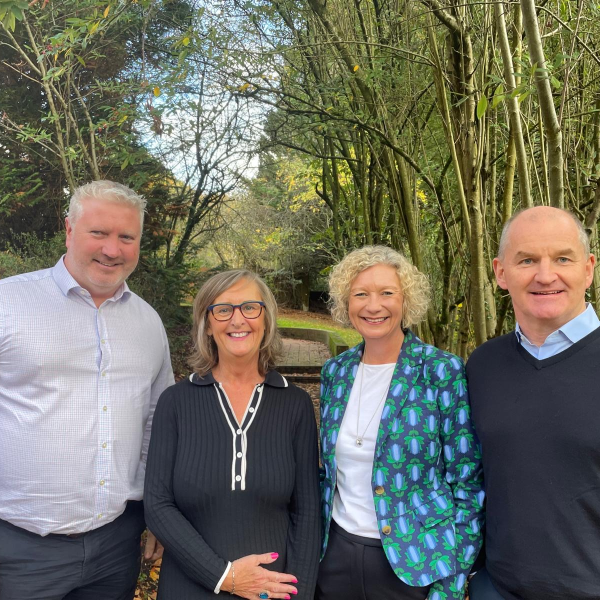Article
Autumn Budget 2021
Article
Autumn Budget 2021
October 29, 2021
7 minute read
Post-Covid age of optimism. After a ‘leaky week’, speculation was that there would be nothing new in the Autumn Budget aside from Sunak’s fondness for socks with sliders. Rishi opened his Budget speech with the news that the OBR is predicting a speedier recovery to pre-Covid levels.

Post-Covid
age of optimism
After
a ‘leaky week’, speculation was that there would be nothing new in the Autumn
Budget aside from Sunak’s fondness for socks with sliders.
Rishi
opened his Budget speech with the news that the OBR is predicting a speedier
recovery to pre-Covid levels. Whilst, the announcement was mainly around
investment into infrastructure and to build-back services. There were a few key
points from our perspective to take away.
“The
recovery of the UK is still a top priority” comments Samantha Daniels, Partner for
Shaw Gibbs,
“Rishi
was keen to point out that this Budget did not draw line under Covid however,
there was certainly some areas to celebrate and, if you keep your glass filled
with pink drinks, draught beer or prosecco you will potentially be paying less
to raise it. Many small business owners have been calling for additional
support to help with Covid recovery and there were a number of measures which
will be appreciated, especially for those in retail, hospitality and leisure.
The Government are encouraging the UK to keep on innovating and investment into
this is a recurring theme in recent years and certainly no surprises here.”
Tax measures include:
- A new temporary business rates relief in England for eligible retail, hospitality and leisure properties for 2022/23
- A change in the earliest age from which most pension savers can access their pension savings without incurring a tax charge. From April 2028 this will rise to 57
- The retention of the £1 million annual investment allowance until 31 March 2023
- Individuals disposing of UK property on or after 27 October 2021 now have a 60 day CGT reporting and payment deadline, following the completion of the disposal.
Other measures include:
- A complete overhaul of alcohol duties that will see drinks taxed on their strength
- The cancellation of the previously announced rise in fuel duties
- Pubs supported with a reduction in draught beer and cider duty
- Increases in the National Living Wage and the National Minimum Wage rates
- An ultra-long-haul band of air passenger duty introduced.
Some Budget proposals may be subject to amendment in the Finance Bill 2021-22. Should you need any further help or support please contact us.
The personal allowance
There is a reduction in the personal allowance for those with ‘adjusted net income’ over £100,000. The reduction is £1 for every £2 of income above £100,000. So there is no personal allowance where adjusted net income exceeds £125,140.
Green National Savings and Investment (NS&I) product
In the Spring Budget 2021 the government announced a green retail savings product through NS&I. The Bonds are now available to buy online and offer savers a chance to support green projects at a fixed rate of 0.65% pa over a three-year term. The Bonds are available to those aged 16 or over, with a minimum investment of £100 and a maximum limit of £100,000 per person. The interest is taxable in the tax year the Bond matures.
Making Tax Digital for income tax
The Making Tax Digital (MTD) regime is based on businesses being required to maintain their accounting records in a specified digital format and submit extracts from those records regularly to HMRC. It had been expected that sole trader businesses and landlords with business income of more than £10,000 per annum would be required to enter the MTD regime for income tax purposes from 6 April 2023. However, HMRC recently announced that this will be deferred until 6 April 2024. Early adoption of digital record keeping and voluntary submission of MTD for income tax data remains possible.
Following the deferral for sole trader businesses and landlords, general partnerships will not be required to comply with MTD for income tax until 6 April 2025 and the date other types of partnerships (for example limited liability partnerships) will be required to comply will be confirmed in the future.
Accounting periods that are not aligned to tax years
Aligned to the revised start date for MTD for income tax, changes will be made to simplify the rules under which trading profits made by self-employed individuals and partnerships are allocated to tax years.
The changes mainly affect unincorporated businesses that do not draw up annual accounts to 31 March or 5 April. The transition to the new rules will take place in the 2023/24 tax year and the new rules will come into force from 6 April 2024.
Plant and machinery
Most corporate and unincorporated businesses are able to utilise a £200,000 annual investment allowance (AIA) to claim 100% tax relief on their qualifying expenditure on plant and machinery. The allowance was temporarily increased to £1 million for expenditure incurred on or after 1 January 2019 and was due to revert back to £200,000 from 1 January 2022. The £1 million allowance will now be retained until 31 March 2023.
Transitional rules will apply to accounting periods that span 1 April 2023.
For companies, this aligns the end of the temporary AIA with the end of the ‘super-deductions’ as announced by the government in Spring Budget 2021.
Structures and Buildings
A Structures and Buildings Allowance (SBA) was introduced with effect from 29 October 2018 to relieve costs for new structures and buildings used for qualifying purposes. A business must hold an allowance statement containing certain information to be eligible to claim SBA. Minor changes will be made to the allowance statement requirements to clarify the information required to be kept.
Annual Tax on Enveloped Dwellings
The Annual Tax on Enveloped Dwellings (ATED) charges increase automatically each year in line with inflation. The ATED annual charges will rise by 3.1% from 1 April 2022 in line with the September 2021 Consumer Price Index.
Residential Property Developer Tax
A new tax will be applied from 1 April 2022 on company profits derived from UK residential property development. The tax will be charged at 4% on profits exceeding an annual allowance of £25 million. For companies that are part of a group, the £25 million allowance will be allocated by the group between its companies.
Cultural relief
The government has announced that it will temporarily increase cultural tax reliefs for theatres, orchestras, museums and galleries across the UK from 27 October 2021 to 31 March 2024, increasing the relief organisations can claim as they invest in new productions and exhibitions.
Changes will also be introduced to better target the cultural reliefs and ensure that they continue to be safeguarded from abuse. These will apply from 1 April 2022.
Research and Development relief reform
Research and Development (R&D) tax reliefs for companies will be reformed to:
- Support modern research methods by expanding qualifying expenditure to include data and cloud costs
- More effectively capture the benefits of R&D funded by the reliefs through refocusing support towards innovation in the UK
- Target abuse and improve compliance.
These changes will take effect from April 2023.
Cross-border group relief
Following the UK’s exit from the European Union (EU), the government is bringing the corporation tax group relief rules relating to European Economic Area (EEA) resident companies into line with those for non-UK companies resident elsewhere in the world. This applies to accounting periods ending on or after 27 October 2021 and will affect UK groups with subsidiary companies established in the EEA along with EEA-resident companies that are trading in the UK through a permanent establishment.
Online Sales Tax
The government has announced its plans to consult and explore the arguments for and against the introduction of an ‘Online Sales Tax’.
Should such a tax be introduced in future, it would raise revenue to fund business rates reductions.
Related content
Need expert advice?
Speak to an expert for advice on
+44-1865 292200 or get in touch online to find out how Shaw Gibbs can help you
Email
info@shawgibbs.com
Need expert advice?
Speak to an expert for advice on
+44-1865 292200 or get in touch online to find out how Shaw Gibbs can help you
Email
info@shawgibbs.com




